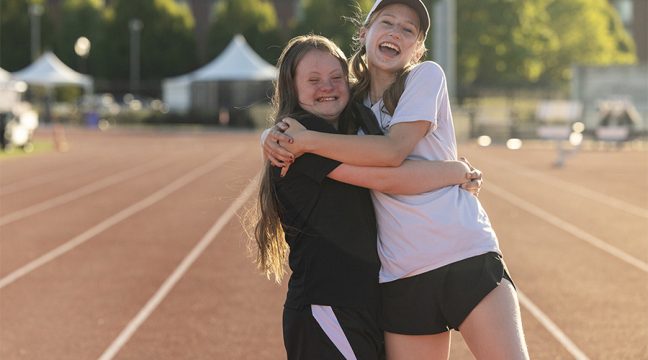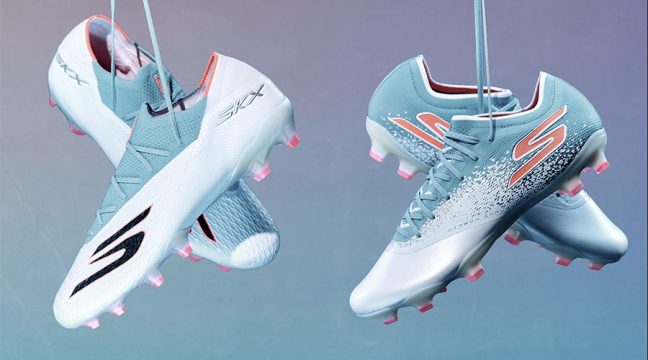Using Bluetooth technology, the shoe communicates directly with the Altra IQ iFit app to continuously transmit data in four key areas.
Writer: Thomas J. Ryan At this year’s Boston Marathon, Altra rolled out the Torin IQ, the first smart shoe and running coach. “Basically it’s a running coach in a shoe,” said Altra founder Golden Harper in an interview at the Boston Marathon EXPO. “It teaches you how to check your body when you need it.” Powered by iFit, feature full-length, razor-thin, featherweight sensors and transmitters embedded in the midsole of each shoe — providing runners with live data for each foot individually. Using Bluetooth technology, the shoe communicates directly with the Altra IQ iFit app on the runner’s smartphone to continuously transmit data in four key areas: landing zone, impact rate, contact time and cadence. The app also tracks pace, distance and time.
The Torin IQ shoe is a strong training tool for a range of runners, from beginners who want to avoid bad habits, to elites who want to finetune their form.
“Many running injuries can be prevented by learning efficient, low-impact running form. However, it can be really hard to analyze running form on yourself,” said Altra founder Golden Harper. “This shoe is designed to help make runners more efficient and to extend the running career of road and trail warriors out there. Intelligence is power, and Altra Torin IQ can provide insights like nothing else.”
“The coolest thing to me is that we are able to give runners coaching tips in their moments of greatest need,” Harper continued. “For example, as a runner’s form starts to slip near the end of a race, the IQ shoe will recognize that and give them coaching tips to get them back on the right track.”
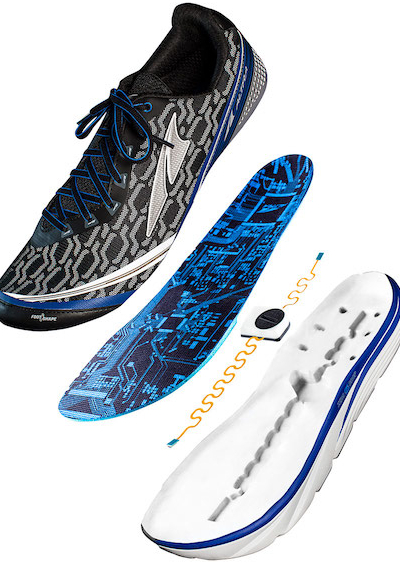
 The Impact Rate utilizes the dual sensors that monitor how hard each foot hits the ground and identifies left as well as right imbalances in a runner’s stride. Coaching tips would then offer guidance on how to help runners land more softly and achieve more balance. Harper notes that often a runner loses form later in a race or run.
“As an example, an individual running at a constant pace with poor form will have a higher impact rate number than they would at the same pace with efficient form,” said Harper. “As runners increase speed, impact rate will naturally increase, even when running with efficient technique. The goal is for runners to maintain a consistent impact rate number while running at a given pace.”
The third data point, Contact Time, shows runners how much time each foot is in contact with the ground and is reported as a number of milliseconds (ms), with a separate score for each foot.
“Lower contact times are often associated with a higher cadence and more efficient, lower impact foot strikes,” Harper said. “Additionally, a left-right imbalance may serve as a clue revealing a current, past, or forthcoming injury.”
The Impact Rate utilizes the dual sensors that monitor how hard each foot hits the ground and identifies left as well as right imbalances in a runner’s stride. Coaching tips would then offer guidance on how to help runners land more softly and achieve more balance. Harper notes that often a runner loses form later in a race or run.
“As an example, an individual running at a constant pace with poor form will have a higher impact rate number than they would at the same pace with efficient form,” said Harper. “As runners increase speed, impact rate will naturally increase, even when running with efficient technique. The goal is for runners to maintain a consistent impact rate number while running at a given pace.”
The third data point, Contact Time, shows runners how much time each foot is in contact with the ground and is reported as a number of milliseconds (ms), with a separate score for each foot.
“Lower contact times are often associated with a higher cadence and more efficient, lower impact foot strikes,” Harper said. “Additionally, a left-right imbalance may serve as a clue revealing a current, past, or forthcoming injury.”
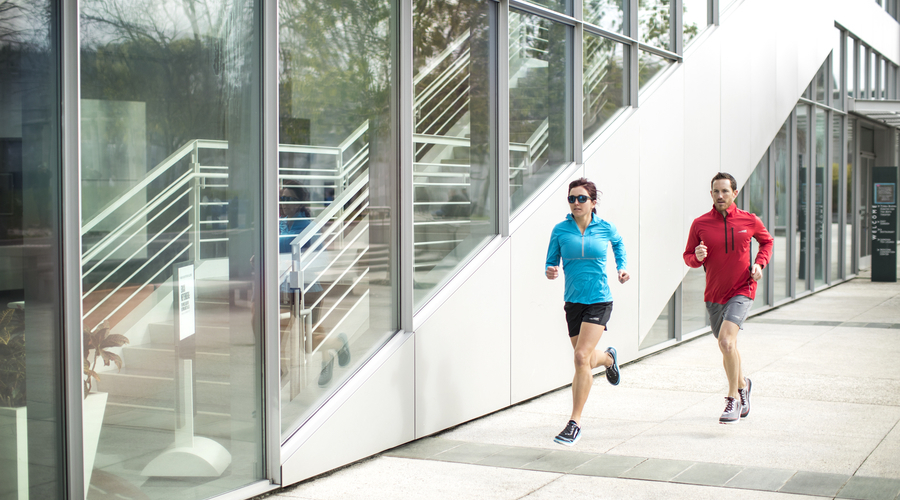 Finally, Cadence (number of total steps per minute) is the live “pulse” of a run and a key factor in form, foot strike and efficiency. Working up to a higher cadence in the 170 to 180 range improves running form and efficiency. The Torin IQ’ live cadence tracking provides data to keep foot turnover at the optimal rate for the current running pace, helping runners become more fluid.
All metrics collected during a run are saved by the app and can be analyzed later.
Altra Elite Athlete Zach Bitter has logged hundreds of miles testing Altra Torin IQ, including training for his American record 100-mile time of 11:40:55, set at the 2015 Desert Solstice Invitational.
Said Bitter, “As a high-mileage runner, I think one of the coolest aspects is the information I learn about how my stride is affected over distance, through injury, sore muscles and such,” Bitter said. “Many variables affect your training, so having baseline data of what you typically do while healthy and being able to spot-check that during a race is invaluable.”
Finally, Cadence (number of total steps per minute) is the live “pulse” of a run and a key factor in form, foot strike and efficiency. Working up to a higher cadence in the 170 to 180 range improves running form and efficiency. The Torin IQ’ live cadence tracking provides data to keep foot turnover at the optimal rate for the current running pace, helping runners become more fluid.
All metrics collected during a run are saved by the app and can be analyzed later.
Altra Elite Athlete Zach Bitter has logged hundreds of miles testing Altra Torin IQ, including training for his American record 100-mile time of 11:40:55, set at the 2015 Desert Solstice Invitational.
Said Bitter, “As a high-mileage runner, I think one of the coolest aspects is the information I learn about how my stride is affected over distance, through injury, sore muscles and such,” Bitter said. “Many variables affect your training, so having baseline data of what you typically do while healthy and being able to spot-check that during a race is invaluable.”
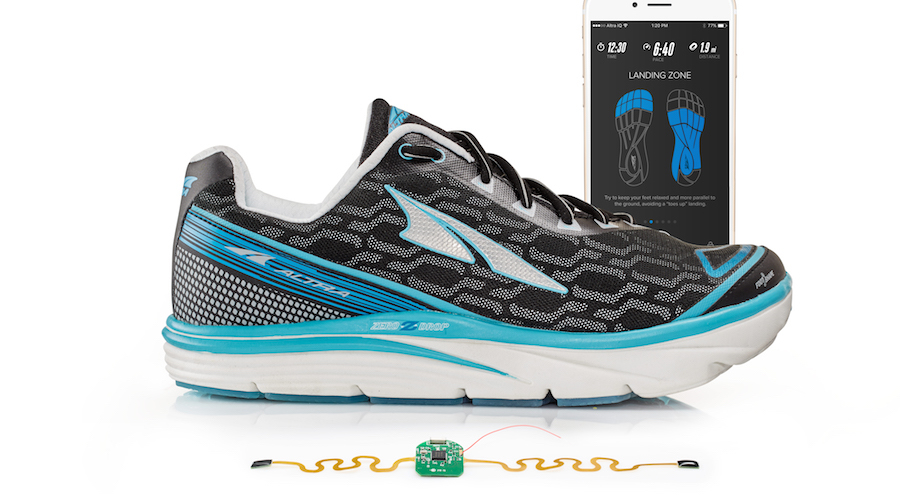 Photos courtesy Altra
Photos courtesy Altra







